Alberta's job market is undergoing a major shift. With a strong energy sector and rapid growth in technology, the hiring forecast for 2025 is robust and diverse. For jobseekers, this means new opportunities are opening up across multiple industries. Understanding where these roles are and what skills are in demand is the key to securing your next position.
This guide will break down the top sectors hiring for Alberta jobs 2025. We will provide a direct look at salaries, in-demand skills, and the cities driving growth. This is your playbook for navigating the evolving job landscape.
What is the Outlook for Alberta Jobs in 2025?
The Canadian economy’s strength is often tied to Alberta’s performance, and 2025 looks promising. The province is seeing growth not just in its traditional energy base, but also in new areas of diversification. While oil prices have stabilized, investment is flowing into both major capital projects and new areas like renewable energy and carbon capture. This creates a dual-track job market.
The primary demand is for highly skilled professionals and certified tradespeople who can support this growth. Companies are hiring for specific skill sets rather than generic roles. Finding a job here means you need to be precise with your search.
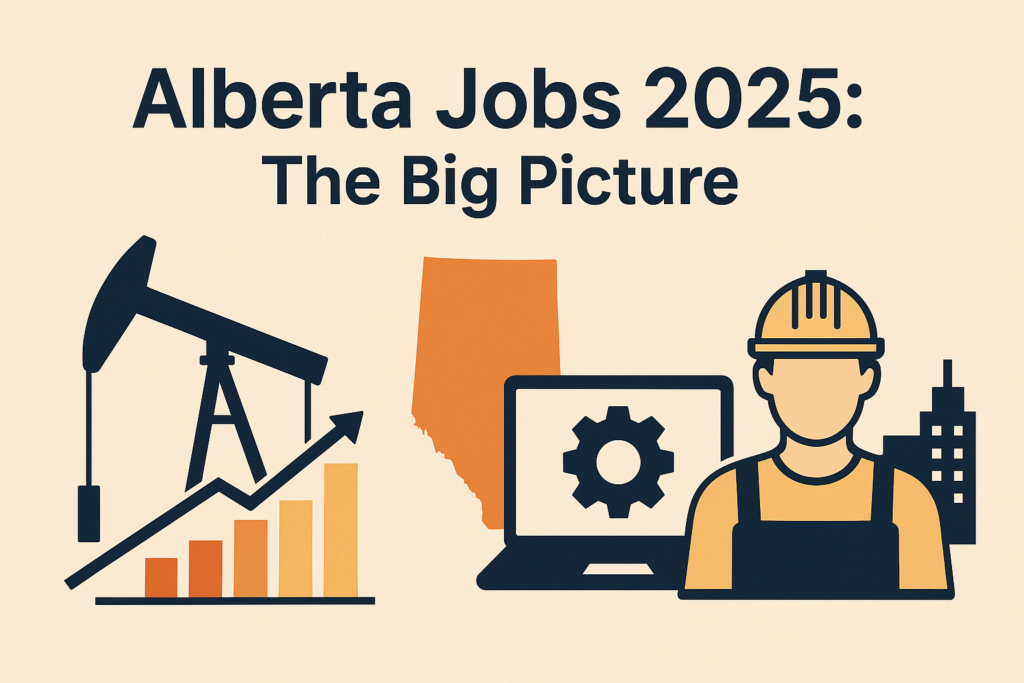
Where is the Strongest Hiring Activity?
The top three sectors driving hiring in Alberta are:
- Oil & Gas: The sector remains a foundational employer, but roles are shifting. We are seeing major hiring in operations, maintenance, and project management.
- Technology: Both Calgary and Edmonton have thriving tech hubs. The focus is on software development, data science, and AI.
- Skilled Trades: The construction and industrial sectors are booming. Demand is high for mechanics, welders, electricians, and heavy-duty equipment technicians.
These three areas will account for the majority of new Alberta jobs 2025.
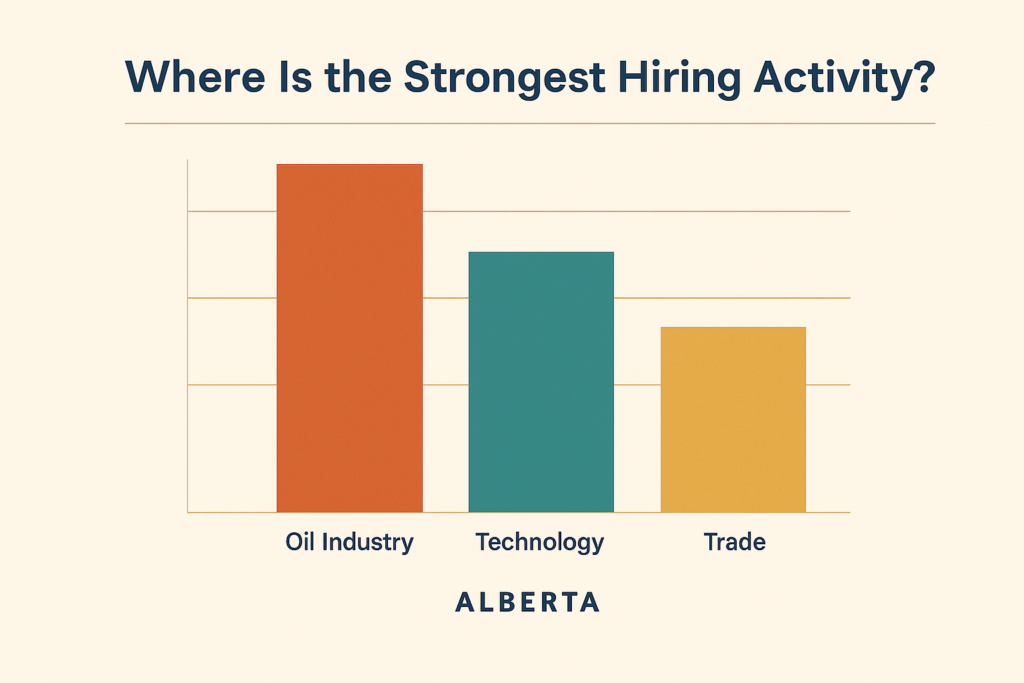
What Roles Are Hot in Alberta’s Oil & Gas Sector?
The oil and gas sector continues to be a cornerstone of the Alberta economy. While production remains key, the sector is also investing in sustainability and new technologies. This creates demand for a new kind of professional.
The top oil and gas jobs Alberta include Petroleum Engineers, Plant Operators, Field Technicians, and HSE Officers. As the industry moves toward a more sustainable future, there is also an increased need for experts in carbon capture, hydrogen technology, and environmental compliance.
- Petroleum Engineers can expect salaries from $90,000 to over $200,000 for senior roles.
- Plant Operators typically earn between $85,000 and $130,000+.
- Field Technicians are seeing salaries in the $70,000 to $110,000+ range.
- HSE Advisors can expect to make $80,000 to $145,000+.
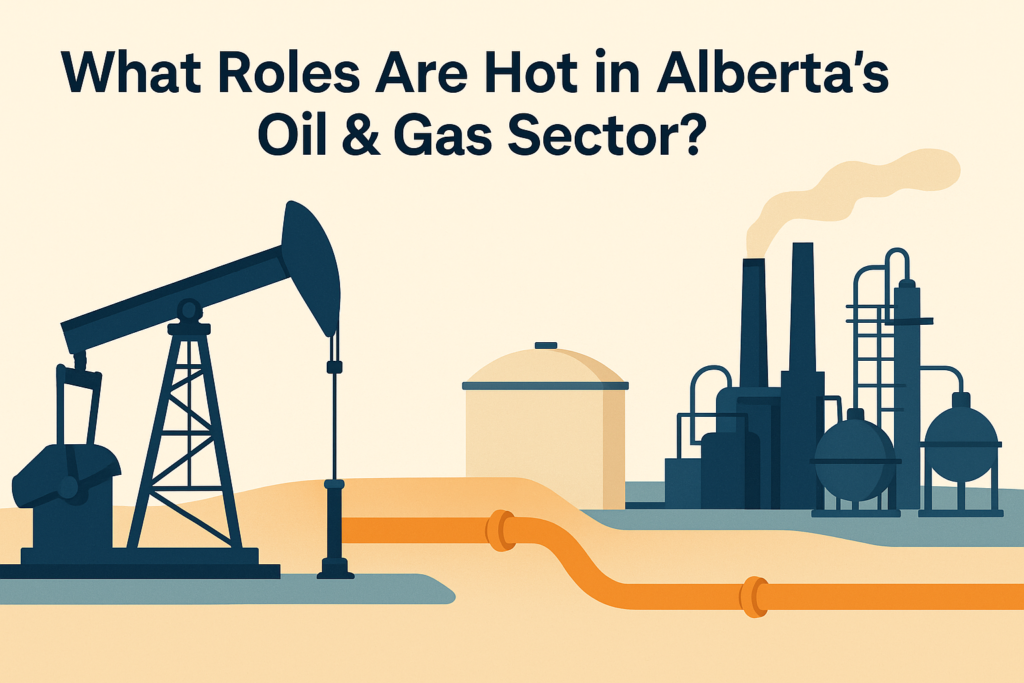
Which Tech Jobs are in Demand in Calgary and Edmonton?
Calgary and Edmonton are emerging as major tech hubs, attracting significant venture capital and top talent. The two cities have distinct but complementary strengths. The most in-demand roles include Software Engineers, Cloud Architects, Data Scientists, and Cybersecurity Analysts.
- Calgary's tech scene is known for financial technology (Fintech) and enterprise software. Tech jobs Calgary are driven by corporate innovation and a growing startup ecosystem.
- Edmonton's tech scene is a leader in artificial intelligence (AI), machine learning, and health technology. Edmonton tech jobs are often linked to research at the University of Alberta and major companies with R&D departments.

How to Get a Job in Skilled Trades & Construction
The construction jobs Alberta market is booming due to high levels of residential and commercial building, as well as industrial projects. This sector offers some of the most consistent work for certified trades. Demand is strongest for Welders, Heavy-Duty Equipment Mechanics, Electricians, and Plumbers.
Beyond the core trade skills, employers look for workers who have safety certifications and experience on large-scale projects. Your trade certificate is your most important asset. Getting your Red Seal endorsement can fast-track your career and open up opportunities across Canada.
- Journeyperson Welders typically earn between $80,000 and $145,000+, with pay often including overtime.
- Journeyperson Electricians can expect salaries from $75,000 to $110,000+.

What is the Salary Outlook for 2025?
Salaries in Alberta remain highly competitive to attract top talent. Here is a look at what you can expect to earn for some of the most in-demand roles.
- A Senior Software Engineer can earn $120,000 to $170,000+, with higher pay in Calgary's tech scene.
- Civil Engineers are seeing strong demand in construction and infrastructure, with salaries from $75,000 to $150,000+.
- A Data Scientist can earn between $70,000 and $140,000+, with pay being higher for those with AI and machine learning expertise.
To get a precise estimate for your specific experience, use a tool like Dr. Job Pro’s Salary Checker.
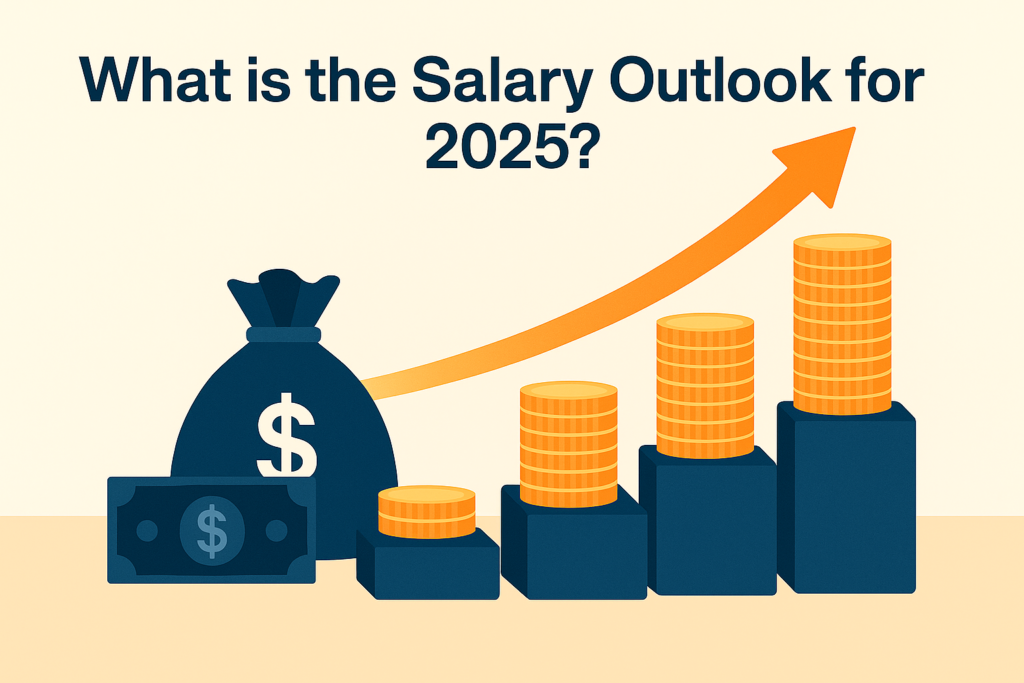
What Skills and Certifications are Essential?
Your resume needs to stand out. Here are the certifications and skills that employers are actively looking for.
- Safety Certifications: H2S Alive, First Aid, and CSTS (Construction Safety Training System) are mandatory for most site-based roles.
- Red Seal Endorsement: This is a national standard for trades that proves your skills and opens up jobs across Canada.
- Project Management: PMP certification is highly valued in both energy and construction.
- Cloud Certifications: AWS, Azure, and GCP certifications are essential for tech roles.

How to Get Hired Fast in Alberta
Getting hired in Alberta is a process. To get a head start, you need to be prepared.
- Optimize Your Resume: Tailor your resume for each job. Use keywords from the job description.
- Network: Attend industry events and connect with recruiters on platforms like LinkedIn.
- Targeted Applications: Don’t just apply to every job. Focus on roles where your skills are a direct match.
Find and apply for Alberta jobs 2025 directly on our platform.

FAQ: Quick Answers for Jobseekers
Energy, tech, and trades lead Alberta hiring in 2025. Calgary and Edmonton drive growth for engineers, developers, and certified trades, while Fort McMurray anchors oil sands roles and major project work.
Top pay clusters: petroleum and project engineers, HSE/site leaders, senior software and cloud architects, and Red Seal trades in heavy industry and construction.
Calgary and Edmonton have the highest number of overall job listings, driven by corporate and tech roles. Fort McMurray leads in high-paying industrial and oil and gas positions.
Red Seal endorsements are the most valuable. Mandatory safety tickets like H2S Alive and First Aid are also non-negotiable for most on-site jobs.
In Calgary, Python and .NET are in high demand for Fintech. In Edmonton, Python and R are key for AI and data science roles.
Alberta salaries remain very competitive, especially for skilled trades and senior technical roles, to compensate for the province's reliance on high-cost resource and industrial sectors.
The hiring process for industrial and oil and gas roles can be longer, often taking 4-8 weeks to complete background checks, safety screenings, and onboarding.
Remote work is common in the tech sector, but many companies are shifting to hybrid models. Roles in trades and energy are almost exclusively on-site.
Employers in Alberta highly value problem-solving, adaptability, and a strong work ethic, particularly in fast-paced, project-based environments.
You can use Dr. Job Pro’s Salary Checker tool to get up-to-date market data for your role and city, which is crucial for salary negotiation.

About the Author: Suleiman Alnsour
Suleiman Alnsour is a career strategist with over 6 years of experience in recruitment and labor market analysis, focused on the Danish and Nordic regions. He specializes in simplifying complex relocation and hiring workflows, providing actionable advice on everything from visa pathways to salary benchmarking.


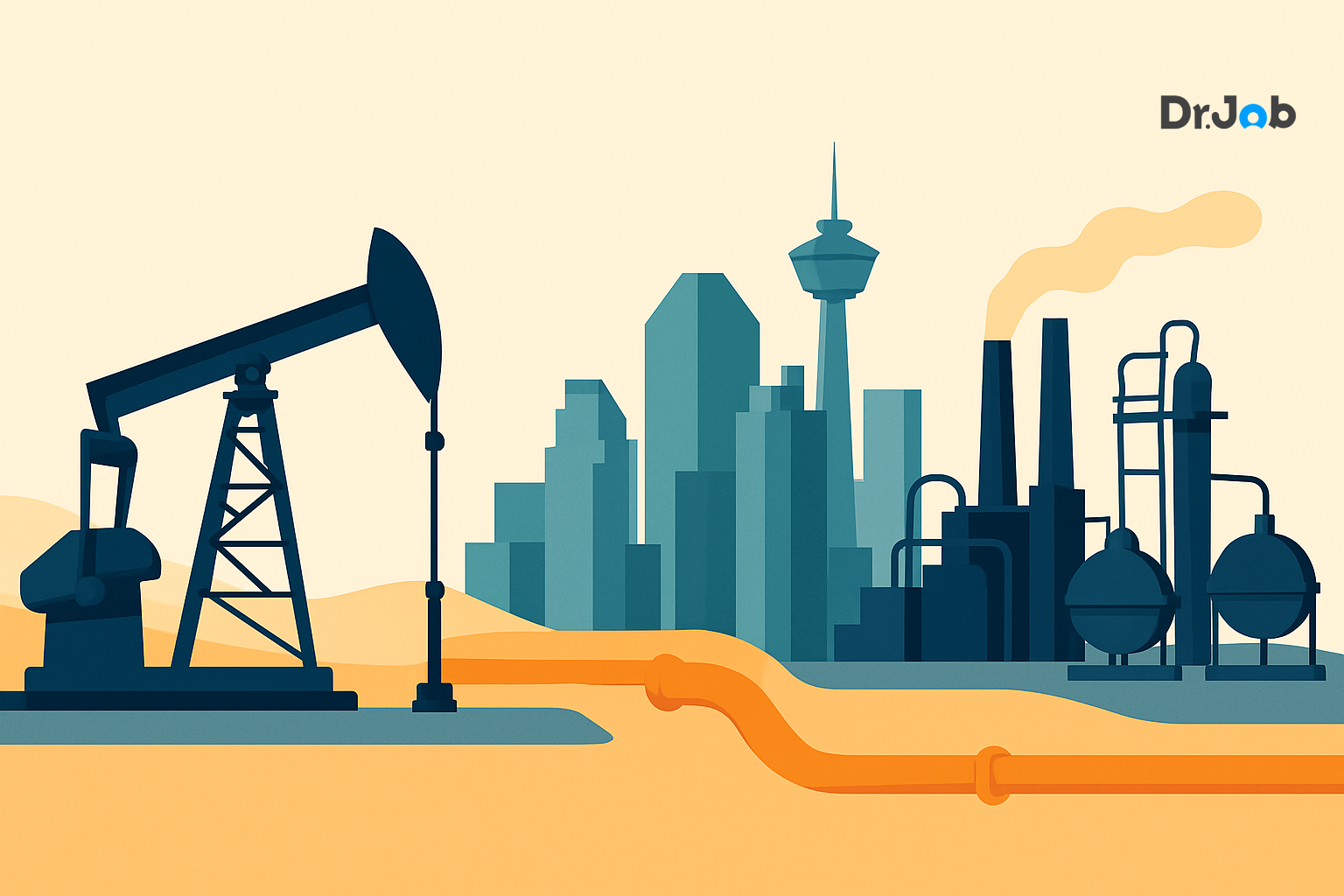






 2025-11-28
2025-11-28
 2025-11-24
2025-11-24
 2025-11-18
2025-11-18
 2025-11-11
2025-11-11
 2025-11-10
2025-11-10